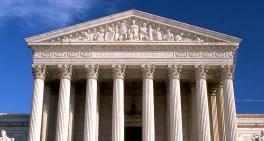Zuckerberg Flubs Details of Facebook Privacy Commitments
Legal Events
Over two days of questioning in Congress, Facebook CEO Mark Zuckerberg chief revealed that he didn’t know key details of a 2011 consent decree with the Federal Trade Commission that requires Facebook to protect user privacy.
With congressional hearings over and no immediate momentum behind calls for regulation, the biggest hammer still hanging over Facebook in the U.S. is a fresh FTC investigation . The probe follows revelations that pro-Trump data-mining firm Cambridge Analytica acquired data from the profiles of millions of Facebook users. Facebook also faces inquiries in Europe.
The 2011 agreement bound Facebook to a 20-year privacy commitment , and any violations of that pact could cost Facebook a ton of money, even by its flush-with-cash standards. If Zuckerberg’s testimony before Congress is any indication, the company might have something to worry about.
Zuckerberg repeatedly assured lawmakers Tuesday and Wednesday that he believed Facebook is in compliance with that 2011 agreement. But he also flubbed simple factual questions about the consent decree.
“Congresswoman, I don’t remember if we had a financial penalty,” Zuckerberg said under questioning by Colorado Rep. Diana DeGette on Wednesday.
“You’re the CEO of the company, you entered into a consent decree and you don’t remember if you had a financial penalty?” she asked. She then pointed out that the FTC doesn’t have the authority to issue fines for first-time violations.
In response to questioning by Rep. Mike Doyle of Pennsylvania, Zuckerberg acknowledged: “I’m not familiar with all of the things the FTC said.”
Zuckerberg also faced several questions from lawmakers about how long it takes for Facebook to delete user data from its systems. He didn’t know.
The 2011 consent decree capped years of Facebook privacy mishaps, many of which revolved around its early attempts to follow users and their friends around the web. Any violations of the 2011 agreement could subject Facebook to fines of $41,484 per violation per user per day. To put that in context, Facebook could theoretically owe $8 billion for one single day of a violation affecting all of its American users.
The current FTC investigation will look at whether Facebook engaged in “unfair acts” that cause “substantial injury” to consumers.
Related listings
-
Romania: Court tells president to fire anti-graft prosecutor
Legal Events 06/11/2018Romania's top court on Wednesday told the country's president to fire the chief anti-corruption prosecutor, widely praised for her efforts to root out high-level graft, but a thorn in the side of some politicians.The move angered some Romanians. More...
-
Spanish court nixes terrorism accusation in Basque incident
Legal Events 06/11/2018Spain's National Court has sentenced seven men and a woman to between two and 13 years in prison for beating up two police officers and their girlfriends, but rejected the prosecutors' argument that the defendants should face terror charges.The call ...
-
Samsung heir freed after appeal wins suspended jail term
Legal Events 02/05/2018Samsung heir Lee Jae-yong was freed Monday after a South Korean appeals court gave him a 2 ½-year suspended jail sentence for corruption in connection with a scandal that toppled the country's president.The Seoul High Court softened the origin...

Processing Change for Certain Form I-730 Petitions
USCIS changed the processing location for certain Form I-730, Refugee/Asylee Relative Petition, filings. Previously the Service Center Operations Directorate processed these filings. Now, the International Adjudications Support Branch (IASB) in the Refugee, Asylum, and International Operations Directorate will process the petitions filed by individuals who were admitted to the United States as refugees. Petitioners and/or accredited representatives who file refugee-based Form I-730 petitions will receive further instructions when IASB receives their filings. Form I-730 petitions filed by persons granted asylum will not be affected by this change. The mailing instructions for Form I-730 remain the same. Petitioners should continue to follow the Where to File directions on the Form I-730 page. This policy update is consistent with the Department of Labor’s (DOL’s) Standard Occupational Classification system. DOL defines economists as people who conduct research, prepare reports, or formulate plans to address economic problems related to the production and distribution of goods and services or monetary and fiscal policy. Economists may collect and process economic and statistical data using sampling techniques and econometric methods.




